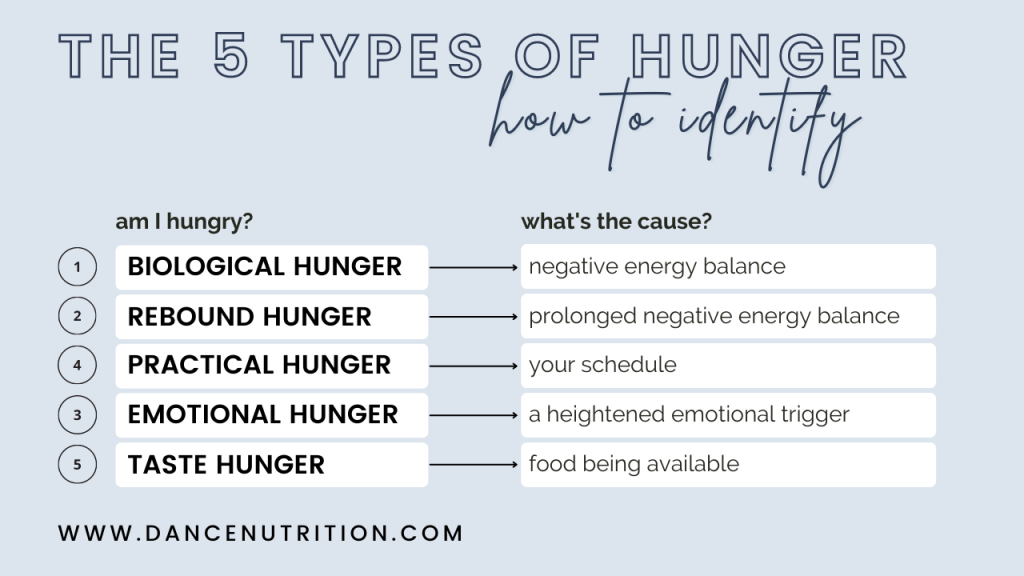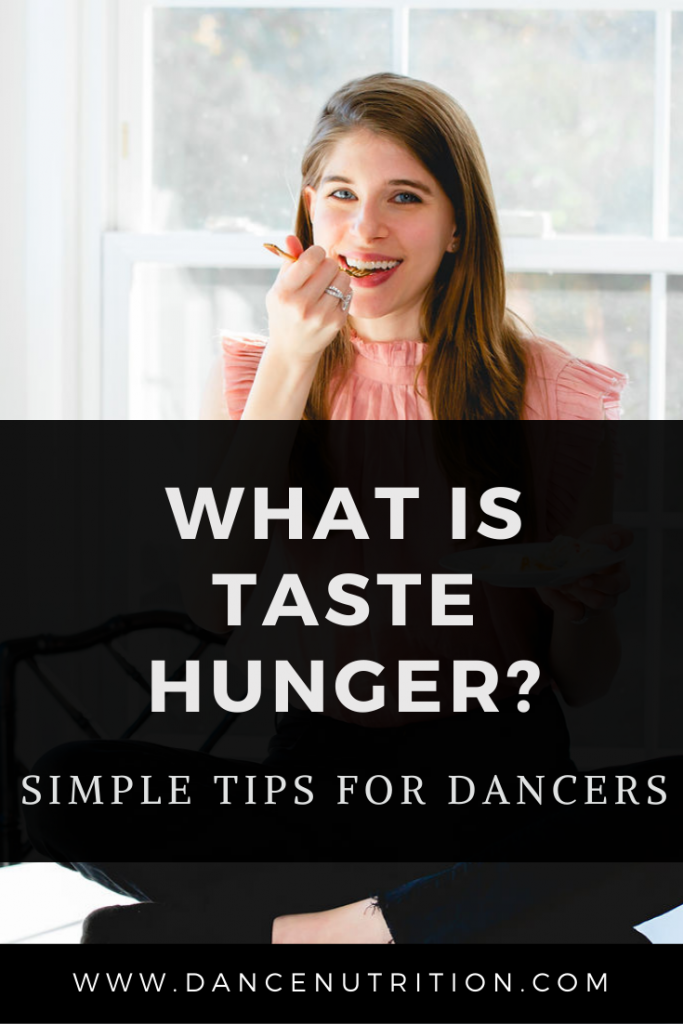We’ve previously discussed how to identify biological hunger and what to do when your biological hunger cues go missing. But what about when you want to eat simply because you enjoy the taste of a particular food?
Taste hunger is one of the five different types of hunger that we can experience. To recap, these include:

- Biological (physical) hunger.
- Rebound hunger.
- Practical hunger.
- Emotional hunger.
- Taste hunger.
Taste hunger occurs when you’re not feeling physically hungry (no grumbling tummy, no hangry mood) but you have a desire to eat. This desire is likely due to an external stimulus that involves food being available. Here’s an example: I’m constantly checking out new recipes and formulating new snack combos for dancers. Because of this, my taste hunger shows up quite often. Without feeling too hungry or too full, the mere experimentation of a delicious snack often sparks my taste buds to want some.
Taste hunger also shows up when we’re offered free food (for example, snacks on an airplane) or food at a social event (like dessert after a big meal). When food is free, it can be enticing to take advantage of it. In the latter instance, taste hunger can be exacerbated by emotional hunger, such as when food is available during a time of joy or stress.
Eating during these instances is completely normal and in some instances, encouraged. Now, I’m not saying that you should be eating to a point past your physical fullness cues, but realize that NOT honoring your taste hunger can lead to growing cravings. These cravings can eventually fuel a cycle of feeling very out of control around food (AKA “over”-eating or binge eating). But here’s the caveat: always consider how you’ll feel physically. If you’re at the point of feeling comfortably full, then waiting to eat might be a better option. Food does generally taste better when we’re truly hungry. But if you do end up eating, understand that there’s no reason to feel guilt. Let’s discuss why.
A learning oppurtunity
Taste hunger provides us with an opportunity to learn. When honoring taste hunger, do you find yourself consistently eating past a comfortable level of fullness? Or, does your taste hunger turn into a version of rebound hunger? Quick recap: rebound hunger is the temporary increase in biological hunger cues that results from prolonged restriction… in other words, you’re ravenous. Bottom line: if your baseline is under-fueled, then you may be experiencing biological hunger and confusing it with taste hunger. Not surprisingly, this is common. Diet culture sets the bar low for what we know to be enough (in regard to how much we’re eating). Take “100-calorie snack packs” as an example. While I don’t encourage anyone to calorie count, you should know that a 100-calorie snack is not nearly enough for anyone!
BTW- this is what we consider to be compassionate curiosity. Rather than beating yourself up for eating without feeling hungry or eating past fullness, you’re exploring the reasons for why it occurred.
Key takeaways
It’s important to honor taste hunger. But you’ll first want to regulate your biological hunger through consistent meals and snacks. From here, you’ll be better equipped to honor taste hunger in a very mindful way. This might look like enjoying a taste of your freshly baked cookies without needing the entire sheet pan to feel satisfied.
Now if you’re eating just because you feel bored, then I recommend you dig deeper into that desire for food. Despite what diet culture says, emotional eating (such as what we do when we eat out of boredom) isn’t necessarily a bad thing. However, we want to make sure food isn’t the only coping mechanism we have during these times. Read more about this topic here.



